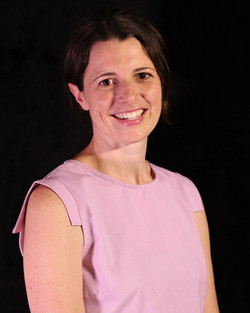People who eat red or processed meat daily have a 40 per cent higher risk of bowel cancer than those who eat it once a week or less, according to the latest research from HRC Girdlers’ fellow Dr Kathryn Bradbury.
Kathryn, who is based at Oxford University’s Cancer Epidemiology Unit on a HRC-funded Girdlers’ fellowship, recently presented her findings at the National Cancer Research Institute annual meeting in Liverpool, UK. The research questioned half a million middle-aged men and women from the UK Biobank study about how often they ate various types of meat and then followed them for four years to track the incidence of cancer.
“Over the four years that we followed these people, there were a total of 1500 cases of bowel cancer. Those who ate red or processed meat daily had a 40 per cent higher risk of bowel cancer than those who ate it only once a week or less. In our study, red meat was considered the total of beef, lamb, and pork,” says Kathryn.
The findings support a recent report from the World Health Organization (WHO) which found that processed meat increases the risk of bowel cancer, classifying it as a Group 1 carcinogen to humans – the same group as smoking tobacco and asbestos exposure.
Although researchers can’t be exactly sure yet just what it is about red meat that raises bowel cancer risk, Kathryn says there are a few main suspects.
“Red meat is a good source of haem iron. When eaten, haem iron may lead to the formation on N-nitroso compounds, which we suspect are carcinogenic. The chemicals [nitrates] used to preserve some processed meats also generate these compounds in the gut. Cooking meat at high temperatures produces other compounds [heterocylic amines and polycyclic aromatic hydrocarbons], which are also possible carcinogens.”
Based on her research, Kathryn says the World Cancer Research Fund’s recommendations that people who eat red meat should eat less than 500g a week – and that very little, if any, of this meat should be processed – is a “reasonable recommendation”.
Both New Zealand and the UK have high rates of bowel cancer, which is one of the main reasons why Kathryn decided to study bowel cancer for her Girdlers’ fellowship. The latest data from 2012 shows that in New Zealand 37 out of every 100,000 people develop bowel cancer every year (in the UK it’s 30 people out of every 100,000 people), making it the third most common cancer behind prostate and breast cancer.
“The Girdlers’ fellowship has given me the opportunity to work with world experts in population health to research what really interests me: that’s investigating dietary risk factors for disease,” says Kathryn.
“This fellowship is also special because as well as being a fellow at Green Templeton College and being a part of college life at Oxford University, I also get to meet regularly with the Girdlers’ Company, which jointly funds the fellowship with the HRC, and enjoy their fantastic hospitality.”
Kathryn’s next line of research is to use the UK biobank data to explore the relationship between vitamin D levels and bowel cancer.
“UK Biobank have taken blood samples from all the study participants and are currently measuring their blood vitamin D levels. There are some previous studies which suggest that higher blood vitamin D levels may be associated with a lower risk of bowel cancer. When we have the vitamin D results from UK Biobank, we plan to conduct the largest ever study to investigate this association.”
The next available opportunity to apply for the Girdlers’ New Zealand HRC fellowship will be in 2016.
